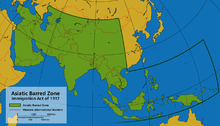This is your morning Open Thread. Pour your favorite beverage and review the past and comment on the future.
Find the past “On This Day in History” here.
February 6 is the 37th day of the year in the Gregorian calendar. There are 328 days remaining until the end of the year (329 in leap years).
On this day in 1952, Elizabeth II becomes the first Queen regnant of the United Kingdom and several other realms since Queen Victoria, upon the death of her father, George VI. At the exact moment of succession, she was in a treehouse at the Treetops Hotel in Kenya.
Elizabeth II (Elizabeth Alexandra Mary, born 21 April 1926) is the Queen regnant of 16 independent sovereign states known as the Commonwealth realms: the United Kingdom, Canada, Australia, New Zealand, Jamaica, Barbados, the Bahamas, Grenada, Papua New Guinea, the Solomon Islands, Tuvalu, Saint Lucia, Saint Vincent and the Grenadines, Belize, Antigua and Barbuda, and Saint Kitts and Nevis. In addition, as Head of the Commonwealth, she is the figurehead of the 54-member Commonwealth of Nations and, as the British monarch, she is the Supreme Governor of the Church of England.
Elizabeth was educated privately at home. Her father, George VI, became King-Emperor of the British Empire in 1936. She began to undertake public duties during the Second World War, in which she served in the Auxiliary Territorial Service. After the war and Indian independence George VI’s title of Emperor of India was abandoned, and the evolution of the Empire into the Commonwealth accelerated. In 1947, Elizabeth made the first of many tours around the Commonwealth, and married Prince Philip, Duke of Edinburgh. They have four children: Charles, Anne, Andrew, and Edward.
In 1949, George VI became the first Head of the Commonwealth, a symbol of the free association of the independent countries comprising the Commonwealth of Nations. On his death in 1952, Elizabeth became Head of the Commonwealth, and constitutional monarch of seven independent Commonwealth countries: the United Kingdom, Canada, Australia, New Zealand, South Africa, Pakistan, and Ceylon. Her coronation in 1953 was the first to be televised. During her reign, which at 58 years is one of the longest for a British monarch, she became queen of 25 other countries within the Commonwealth as they gained independence. Between 1956 and 1992, half of her realms, including South Africa, Pakistan, and Ceylon (renamed Sri Lanka), became republics.
In 1992, which Elizabeth termed her annus horribilis (“horrible year”), two of her sons separated from their wives, her daughter divorced, and a severe fire destroyed part of Windsor Castle. Revelations on the state of her eldest son Charles’s marriage continued, and he divorced in 1996. The following year, her former daughter-in-law Diana, Princess of Wales, died in a car crash in Paris. The media criticised the royal family for remaining in seclusion in the days before Diana’s funeral, but Elizabeth’s personal popularity rebounded once she had appeared in public and has since remained high. Her Silver and Golden Jubilees were celebrated in 1977 and 2002 respectively, and planning for her Diamond Jubilee in 2012 is underway.



 On this day in 1925,
On this day in 1925,  At the January 24 meeting of the board of health superintendent Mark Summers of the Hammon Consolidated Gold Fields proposed a dogsled relay, using two fast teams. One would start at Nenana and the other at Nome, and they would meet at Nulato. His employee, the Norwegian
At the January 24 meeting of the board of health superintendent Mark Summers of the Hammon Consolidated Gold Fields proposed a dogsled relay, using two fast teams. One would start at Nenana and the other at Nome, and they would meet at Nulato. His employee, the Norwegian  On this day in 1896, the opera
On this day in 1896, the opera
Recent Comments